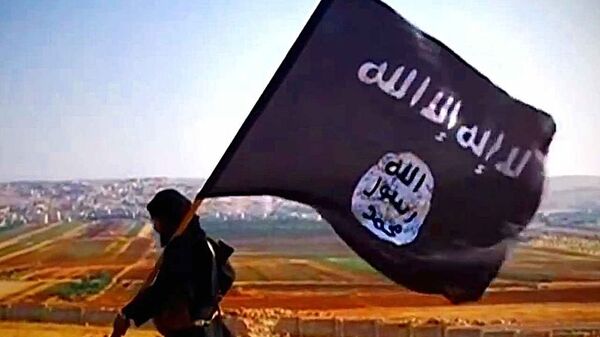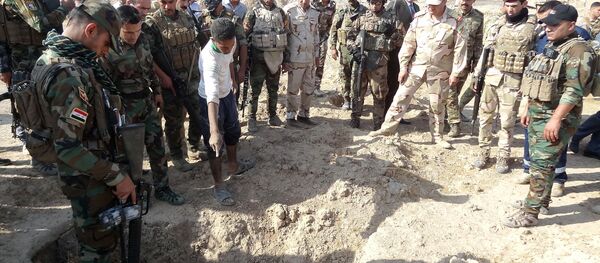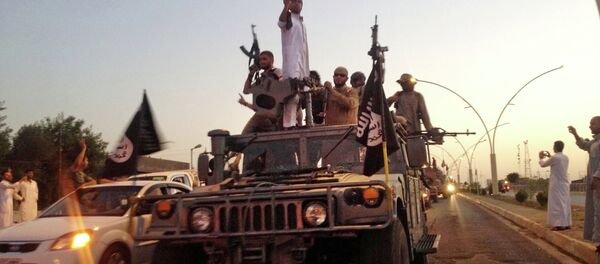Kristian Rouz – Daesh (ISIS) started using bomb-equipped unmanned aircraft in Syria this past summer to attack Syrian government troops, producing heightened concerns surrounding the possible use of drones by terrorists elsewhere. On Friday, the US Department of Homeland Security (DHS) released a bulletin warning Americans about the threat of Islamic terrorism.
"Some terrorist groups overseas are using battlefield experiences to pursue new technologies and tactics, such as unmanned aerial systems and chemical agents that could be used outside the conflict zones," the DHS bulletin reads.
Previously, the US Department of Defense (DoD) requested additional funding to battle Daesh drones in Syria, including with lasers and specialized nets. However, the easy availability of drones for commercial use, unrestricted private ownership, and a lack of licensing of such aircraft assure that drones can be used in any part of the world, including by Islamic terrorists.
Drones are easy to modify as well, meaning unmanned aircraft could also be equipped with primitive, yet deadly, weapons. US authorities are currently investigating a Connecticut resident who posted a video of a drone equipped to fire a 9-mm handgun.
The DHS also said drones could pose a threat to commercial aircraft by intruding restricted airspace over airports and being deliberately directed at planes during landing and take-off. Such collisions would be more dangerous than routine collisions with birds, for example, which sometimes disrupt airport operations.
"Additionally, terrorists continue to target commercial aviation and air cargo, including with concealed explosives," the DHS bulletin reads. "Violent extremist media encourages individuals worldwide to launch attacks using all means possible."
The DHS also said there is currently an increase in Islamic terrorist activity, likely stemming from the recent ISIS defeats on the battlefield in Syria and Iraq. The menace of Islamic terror is also exacerbated by ongoing mass-migration, resulting in a substantial presence of potential recruits among terror entities in countries which are fighting terror on the battlefield.
This means Islamic terrorists may have also figured out how to weaponize drones – but their target is not a rivaling entity with similar interests in the same industry. Islamic terrorists would target anyone, and the more casualties they can inflict, the greater media coverage they can achieve, and the most accomplished they would feel.
The DHS pursues a ‘see something, say something’ policy, hoping Islamic terrorist attempts to weaponize drones on US soil would be reported in a timely manner. The DHS also says Daesh has multiple affiliates, branches, and sympathizers around the world.
The US urges other countries committed to fighting Islamic terrorism to adopt tougher security measures, paying particular attention to the movement of biohazardous waste, chemical toxins, nuclear waste – and the use of drones.




